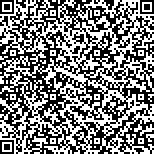| 摘要: |
| [目的]通过湖北、安徽、河南3省的实证调研,对农业转移人口市民化意愿进行了分析,为新型城镇化建设提供参考。[方法]以计划行为理论为基础,构建结构方程模型,从行为态度、主观规范、知觉行为控制、过去的行为4个层面分析农业转移人口市民化意愿。[结果]行为态度、主观规范、知觉行为控制、过去的行为对市民化意愿影响的标准化路径系数分别为0.632、0.451、0.322、0.364(P值均小于0.001)。其中,农业转移人口对市民化的态度更多来源于工具层面的认知,主观规范中更注重参考家人和亲戚朋友的意见,知觉行为控制中个体素质和社会资本影响较大,但也应充分关注老人的照顾问题,过去的行为中是否有务工经验对个体影响较大。[结论]行为态度、主观规范、知觉行为控制、过去的行为对农业转移人口市民化意愿存在不同程度的显著影响。 |
| 关键词: 新型城镇化 农业转移人口 市民化 计划行为理论 影响因素 |
| DOI:10.7621/cjarrp.1005-9121.20170712 |
| 分类号: |
| 基金项目:安徽省高校人文社会科学研究重大项目“新型城镇化背景下推进安徽农业转移人口市民化的制度框架与路径选择”(SK2014ZD023); 安徽省社会科学规划项目“新型城镇化视阈下新生代农民工城市融入机制研究”(AHSKY2015D48); 安徽科技学院项目“新型城镇化背景下推进安徽农业转移人口市民化的路径选择”(SRC2014404) |
|
| THE WILLINGNESS OF AGRRICULTURAL TRANSTER POPULATION IN THE PERSPECTIVE OF NEW URBANIZATION |
|
Cheng Shuping, Cheng Yebing, Zhang Dehua
|
|
School of Management, University of Science and Technology of Anhui, Bengbu 233100, China
|
| Abstract: |
| Through the empirical research on Hubei, Anhui and Henan provinces, this paper analyzed the urbanization willingness of agricultural transfer population, and provided a reference for the new urbanization construction. Based on the theory of planned behavior, it constructed the structural equation model, analyzed the willingness of agricultural transfer population from the four aspects of behavioral attitude, subjective norm, perceptual behavior control and past behavior. The results were as follows: the standardized path factors of the impact of behavioral attitudes, subjective norms,perceived behavior control and the past behavior on the wish of the community were 0.632, 0.451, 0.322, and 0.364, respectively. The attitude of urbanization was mainly from the tool level of cognition. The subjective norms more concerned with the views of family members, relatives and friends. Individual quality and social capital can impact greater for perceptual behavior control, but it should pay full attention to the elders. The past behavior of migrant workers had greater impacts. It concluded that behavioral attitudes had a significant effect on the willingness of urbanization of agricultural population, subjective norms and perceived behavior control had significant impacts on the willingness of urbanization. |
| Key words: new urbanization agricultural transfer population civilization theory of planned behavior influencing factors |

